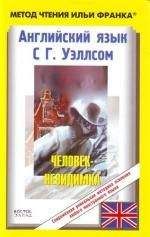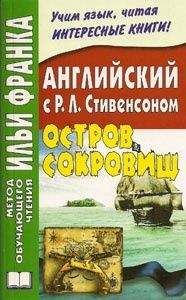“Who is it (кто там: «кто это»)?”
“It’s somebody to see you (тут вас спрашивают: «кто-то к вам»), Mr. Andreson,” the woman said.
“It’s Nick Adams.”
“Come in.”
Nick opened the door and went into the room. Ole Andreson was lying on the bed (лежал на кровати) with all his clothes on (одетый: «с одеждой на нем»). He had been a heavyweight prize-fighter (боксером-тяжеловесом; heavy — тяжелый; weight — вес; prize — награда, премия; to fight — драться, биться) and he was too long for the bed (слишком длинный для кровати). He lay with his head on two pillows (с головой на двух подушках). He did not look at Nick.
Outside the arc-light shone through the bare branches of a tree. Nick walked up the street beside the car-tracks and turned at the next arc-light down a side-street. Three houses up the street was Hirsch’s rooming-house. Nick walked up the two steps and pushed the bell. A woman came to the door.
“Is Ole Andreson here?”
“Do you want to see him?”
“Yes, if he’s in.”
Nick followed the woman up a flight of stairs and back to the end of a corridor. She knocked on the door.
“Who is it?”
“It’s somebody to see you, Mr. Andreson,” the woman said.
“It’s Nick Adams.”
“Come in.”
Nick opened the door and went into the room. Ole Andreson was lying on the bed with all his clothes on. He had been a heavyweight prize-fighter and he was too long for the bed. He lay with his head on two pillows. He did not look at Nick.
heavy [hevI] weight [weIt]
“What was it (в чем дело: «что это было»)?” he asked.
“I was up at Henry’s,” Nick said, “and two fellows came in (пришли два парня, типа) and tied me and the cook, and they said they were going to kill you.”
It sounded silly when he said it (прозвучало, звучало глупо, когда он это сказал). Ole Andreson said nothing.
“George thought I better come and tell you about it (Джордж подумал, что мне лучше придти и сказать вам об этом).”
“There isn’t anything I can do about it (я ничего не могу поделать с этим),” Ole Andreson said.
“I’ll tell you what they were like (как они выглядели: «на что они были похожи»).”
“I don’t want to know (я не хочу знать) what they were like,” Ole Andreson said. He looked at the wall (на стену). “Thanks for coming to tell me about it (спасибо, что пришел рассказать мне об этом).”
“That’s all right (не стоит /благодарности/: «это в порядке»).”
Nick looked at the big man lying on the bed.
“Don’t you want me to go and see the police (не хотите, чтобы я сходил и заявил в полицию)?”
“No,” Ole Andreson said. “That wouldn’t do any good (это бесполезно: «это не сделало бы ничего хорошего»).”
“Isn’t there something I could do (есть тут что-нибудь, что бы я мог сделать = могу я чем-нибудь помочь)?”
“No. There ain’t anything to do.”
“Maybe it was just a bluff (может быть, это был просто обман, блеф).”
“No. It ain’t just a bluff.”
Ole Andreson rolled over (перевернулся: «перекатился») toward the wall (к стене), “I just can’t make up my mind (я просто не могу решиться, собраться с духом) to go out (выйти). I been in here all day (я был здесь внутри целый день).”
“Couldn’t you get out of town (не могли бы вы уехать из города)?”
“No,” Ole Andreson said. “I’m through with all that running around (я покончил со всей этой беготней: «беганьем вокруг, повсюду»).”
He looked at the wall.
“There ain’t anything to do now.”
“Couldn’t you fix it up some way (не могли бы вы это уладить как-нибудь; to fix — укрепить; починить)?”
“No. I got in wrong (я сделал ошибку, влип = теперь уже поздно; wrong — неверный, неправильный).” He talked in the same flat voice (он говорил тем же плоским = унылым голосом). “There ain’t anything to do. After a while (через некоторое время) I’ll make up my mind to go out.”
“I better go back and see George,” Nick said.
“So long,” said Ole Andreson. He did not look toward Nick. “Thanks for coming around (спасибо, что зашел).”
“What was it?” he asked.
“I was up at Henry’s,” Nick said, “and two fellows came in and tied me and the cook, and they said they were going to kill you.”
It sounded silly when he said it. Ole Andreson said nothing.
“George thought I better come and tell you about it.”
“There isn’t anything I can do about it,” Ole Andreson said.
“I’ll tell you what they were like.”
“I don’t want to know what they were like,” Ole Andreson said. He looked at the wall. “Thanks for coming to tell me about it.”
“That’s all right.”
Nick looked at the big man lying on the bed.
“Don’t you want me to go and see the police?”
“No,” Ole Andreson said. “That wouldn’t do any good.”
“Isn’t there something I could do?”
“No. There ain’t anything to do.”
“Maybe it was just a bluff.”
“No. It ain’t just a bluff.”
Ole Andreson rolled over toward the wall, “I just can’t make up my mind to go out. I been in here all day.”
“Couldn’t you get out of town?”
“No,” Ole Andreson said. “I’m through with all that running around.”
He looked at the wall.
“There ain’t anything to do now.”
“Couldn’t you fix it up some way?”
“No. I got in wrong.” He talked in the same flat voice. “There ain’t anything to do. After a while I’ll make up my mind to go out.”
“I better go back and see George,” Nick said.
“So long,” said Ole Andreson. He did not look toward Nick. “Thanks for coming around.”
police [ [email protected]'li:s]]
Nick went out. As he shut the door he saw Ole Andreson with all his clothes on, lying on the bed looking at the wall.
“He’s been in his room all day,” the landlady said downstairs (сказала хозяка комнат внизу /лестницы/). “I guess he don’t feel well (я думаю, уж не заболел ли: «он не чувствует себя хорошо»; to guess — угадывать; предполагать). I said to him: ‘Mr. Andreson, you ought to go out and take a walk (вам надо бы выйти и прогуляться: «взять = сделать прогулку») on a nice fall day like this (в такой прекрасный осенний день),’ but he didn’t feel like it (ему не захотелось).”
“He doesn’t want to go out (он не хочет выходить из дому).”
“I’m sorry he don’t feel well (мне жаль, что он чувствует себя неважно),” the woman said. “He’s an awfully nice man (ужасно славный человек). He was in the ring (он был на ринге = был боксером), you know.”
“I know it.”
“You’d never know it (никогда бы не догадаться: вы бы никогда этого не узнали) except from the way his face is (за исключением, кроме как по тому, каково его лицо),” the woman said. They stood talking just inside the street door (они стояли, разговаривая, прямо в двери на улицу). “He’s just as gentle (настолько он мягкий, кроткий).”
“Well, good-night (прощайте, доброго вечера, ночи), Mrs. Hirsch,” Nick said.
“I’m not Mrs. Hirsch,” the woman said. “She owns the place (она владеет этим местом). I just look after it for her (я просто присматриваю за ним для нее). I’m Mrs. Bell.”
“Well, good-night, Mrs. Bell,” Nick said.
“Good-night,” the woman said.
Nick went out. As he shut the door he saw Ole Andreson with all his clothes on, lying on the bed looking at the wall.
“He’s been in his room all day,” the landlady said downstairs. “I guess he don’t feel well. I said to him: ‘Mr. Andreson, you ought to go out and take a walk on a nice fall day like this,’ but he didn’t feel like it.”
“He doesn’t want to go out.”
“I’m sorry he don’t feel well,” the woman said. “He’s an awfully nice man. He was in the ring, you know.”
“I know it.”
“You’d never know it except from the way his face is,” the woman said. They stood talking just inside the street door. “He’s just as gentle.”
“Well, good-night, Mrs. Hirsch,” Nick said.
“I’m not Mrs. Hirsch,” the woman said. “She owns the place. I just
look after it for her. I’m Mrs. Bell.”
“Well, good-night, Mrs. Bell,” Nick said.
“Good-night,” the woman said.
guess [ges]
Nick walked up the dark street to the corner under the arc-light (прошел по темной улице до угла под фонарем), and then along the car-tracks to Henry’s eating house. George was inside, back of the counter.
“Did you see Ole?”
“Yes,” said Nick. “He’s in his room and he won’t go out.”
The cook opened the door from the kitchen when he heard Nick’s voice.
“I don’t even listen to it (я даже не слушаю это),” he said and shut the door.
“Did you tell him about it?” George asked.
“Sure. I told him but he knows what it’s all about.”
“What’s he going to do?”
“Nothing.”
“They’ll kill him.”
“I guess they will.”
“He must have not mixed up in something in Chicago (ему не надо было впутываться во что-то там в Чикаго).”
“I guess so (полагаю, что так),” said Nick.
“It’s a hell of a thing (скверное: «адское» дело; hell — ад).”
“It’s an awful thing,” Nick said.
They did not say anything. George reached down for a towel (достал полотенце: «потянулся вниз за полотенцем») and wiped the counter (и вытер стойку).
“I wonder what he did (интересно, что же он такое сделал)?” Nick said.
“Double-crossed somebody (перехитрил, обошел кого-то, перебежал кому-то дорогу). That’s what they kill them for (вот за что они их убивают = именно за это обычно убивают).”
“I’m going to get out of this town (я уеду, хотел бы, собираюсь уехать из этого города),” Nick said.
“Yes,” said George. “That’s a good thing to do (это хорошо бы: «это хорошая штука = хорошо бы так сделать»).”
“I can’t stand (я не могу вынести, терпеть) to think about him waiting in the room (когда подумаю, как он ждет в комнате) and knowing he’s going to get it (и знает, что получит это = что с ним кончено). It’s too damned awful (это ужасно: «это слишком чертовски: «проклято» ужасно»).”
“Well,” said George, “you better not think about it (а ты лучше не думай об этом).”
Nick walked up the dark street to the corner under the arc-light, and then along the car-tracks to Henry’s eating house. George was inside, back of the counter.
“Did you see Ole?”
“Yes,” said Nick. “He’s in his room and he won’t go out.”
The cook opened the door from the kitchen when he heard Nick’s voice.
“I don’t even listen to it,” he said and shut the door.
“Did you tell him about it?” George asked.
“Sure. I told him but he knows what it’s all about.”
“What’s he going to do?”
“Nothing.”
“They’ll kill him.”
“I guess they will.”
“He must have not mixed up in something in Chicago.”
“I guess so,” said Nick.
“It’s a hell of a thing.”
“It’s an awful thing,” Nick said.
They did not say anything. George reached down for a towel and wiped the counter.



